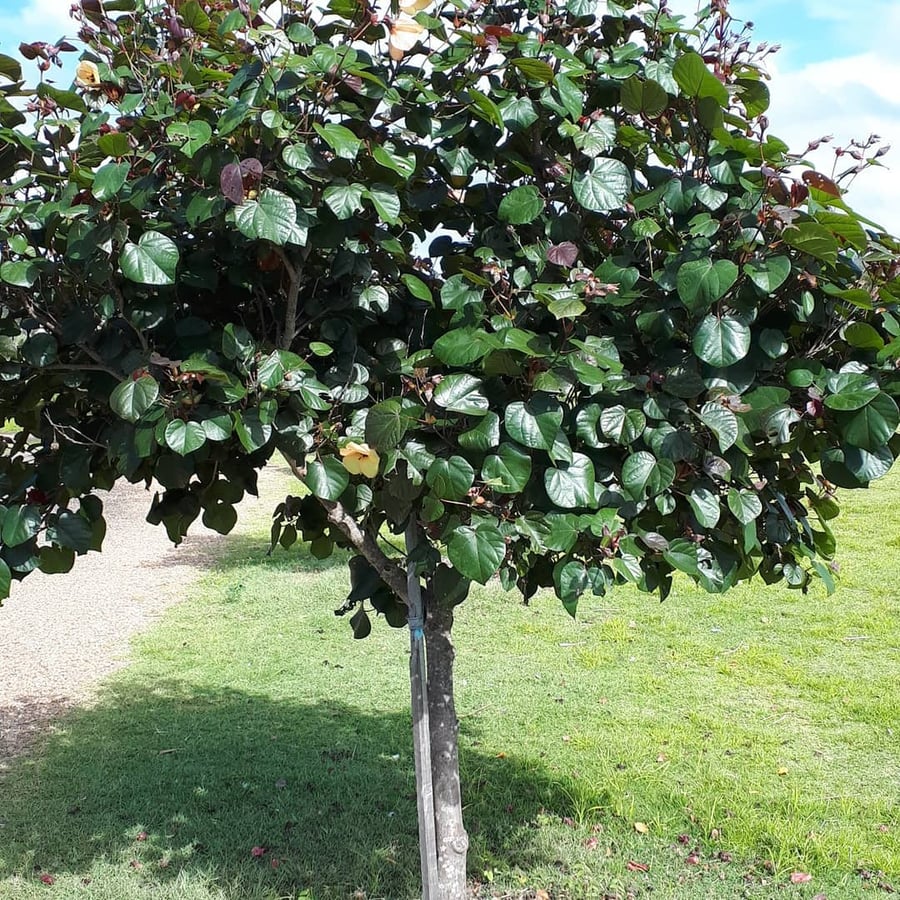30 FRESH COTTONWOOD SEEDS (Hibiscus Tiliaceus); Ideal ornamental tree for a garden
$6.00You will receive 30 freshly harvested, premium seeds from our original, massive, organic tree.
Hibiscus tiliaceus, Common Names: Cottonwood Tree, Mangrove Hibiscus, Beach Hibiscus, Sea Hibiscus
Hibiscus tiliaceus is a very useful plant in that it will grow when most others will not e.g. in coastal, saline, sandy locations - hence its common name of Beach Hibiscus.
It has heart shaped, shiny, dark green leaves with whitish undersides that are around 12cms across while the bark is pale, creamy/grey.
The attractive, solitary yellow flowers with a dark bronze center are funnel shaped and pendulous with prominent fused stamen which is common amongst most Hibiscus. They start as a clear yellow turning to orange and red before dropping off - generally flowers don't last much more than 24 hours.
This is not a frost hardy Hibiscus and although happy in coastal settings, it does not like lots of cold winds.
They make excellent shade and screen trees.
Soil: It will adapt to many soil types but prefers moist but well drained soils to grow Hibiscus tiliaceus optimally.
It will tolerate all sorts of inhospitable soils, especially saline with occasional inundation.
Maintenance: You can let it grow as a shrub by giving it regular overall trims, especially in springtime, or you can train it by selecting one strong leader to encourage it to grow as a tree.
A complete, native formulation, slow release fertilizer will be helpful to get it established.
Small to medium evergreen tree with bright showy yellow flowers in summer, grows to 4-7 meter tall, 3-5 meter wide.
Good plant option for suburban, courtyard, balcony and small garden.
Does well in pots, popular bonsai plant in Asian countries.
Full sun
Attracting bird & butterfly, an important re-vegetation species for creek and coastal fringes.
Perfect as a windbreak, shade plant or screening plant, cyclone resistant
Tolerates salinity and water logging conditions, and can grow in a variety of coastal sands and poorly drained soil conditions.
The young shoots are eaten as a vegetable.The leaves also are used for fermenting soy into tempeh in Indonesia.
Due to quarantine restrictions plants can not be sent to NT, WA or TAS.
